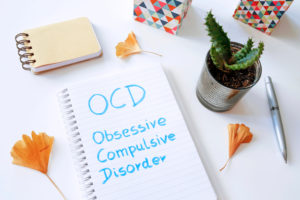
Stress can be overwhelming at times and, at other times, can sit just below the surface, causing us to seek out and use unhelpful coping mechanisms.
After a long day at work, it can be tempting to reach for a glass of wine or a beer but alcohol, among many other common ways people try to deal with difficulty, can actually make your problems worse in the long term.
Regardless of whatever feelings you are currently experiencing, whether due to depression, anxiety, stress, or something else, our team of psychologists, counsellors and psychotherapists at Newcastle Psychologist & Counselling have compiled a list of 3 common coping strategies to avoid:
1. Alcohol
In the short term, alcohol can have a relaxing effect on the body though it is actually a depressant which slows down reaction times, makes us more impulsive and, when consumed in large quantities, can make you even more emotional.
It can also cause other problems.
It is not uncommon for prolonged or regular use of alcohol to cause anxiety, deeper depression, increased episodes of anger, and feelings of loss of control over your emotions.
As alcohol also has addictive qualities, reaching for a drink time after time can cause dependency and physical damage onto the body as well as to the brain and have a long-term effect on health and quality of life.
2. Drugs
Like with alcohol, some people turn to recreational drugs to manage their emotions. These too can be unhelpful in recovery however and can cause further physical and mental health problems.
Different drugs have different effects on the body and while they may make you forget about your situation for the time (through escapism), they do not solve your problems and so a vicious cycle of drug use and escapism can occur.
It’s also common that after the initial high of drugs, many people report sleep trouble, low mood, anxiety, feelings of hopelessness and even suicidal thoughts the day after – or even longer.
This highlights how using drugs as a coping strategy can lead to feeling worse while also not solving the problem causing your distress.
3. Avoidance
Many people try to avoid their problems, either by trying to push them to the back of their minds, or actively avoiding difficult discussions about their feelings.
This might seem like a short-term solution to negative thoughts or feelings, but eventually they do return, and often with more force. Many adults still suffer with unresolved issues from childhood, which shows how long problems can continue if not dealt with properly.
Problems that go back many years might be due to difficult past experiences, which are often because of unprocessed feelings and/or avoidance.
Our team of counsellors, CBT therapists and psychologists in Newcastle are highly skilled in being able to help overcome negative thoughts and feelings, and can help you take positive action to overcome your problems.
Contact us for Further Help
If you feel that you are struggling to manage, or need help developing more effective coping strategies, contact us using the box below, or call us today on 07966 645198.

Best wishes,
Dr Stuart Sadler
Lead Clinical Psychologist




